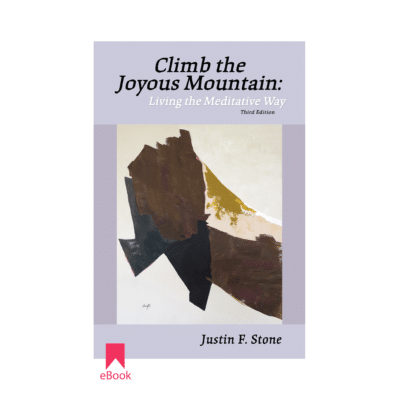
The world is a reflection of ourselves. What we see without is an accurate measure of what we are within. If there is serenity inside, the outside world seems friendly. When we go to a strange place with our hands outstretched and open, willing to offer whatever we have to give, the reception is warm, we make friends, and life is joyous. But if we grasp, if we manipulate and exploit, the result is different. Our vibration is changed, our appearance is uninviting, and we repel others.
The mind that is often in meditation carries within it a continuous current of livingness, perhaps best described as “suchness.” We cannot pretend serenity; it will show in the way we meet daily situations. Each event and meeting has its own value if we can appreciate it. The way of heroes is the quiet way.
What meditation technique we use (if we formally meditate) is not important. Expanded awareness or inner certainty are the fruits. They do not have to be explained. “Know Thyself” is only possible when we go within and probe the deepest levels, far beyond the conscious and thinking mind. To rest in awareness, without labeling each happening as good and bad, pleasing or unpleasing, takes training. The mind is restless with the habit energies of many lifetimes. These are well-worn grooves that we follow habitually, just as we speak our native language. To learn a new tongue is difficult and to go in a new direction is also hard. If we do not make the effort, we stagnate. Habit is man’s greatest enemy; spontaneity is a great boon. The mind conditioned by meditation does not have to pause for long reflection; the reaction is instant, and often we hear ourselves saying something meaningful and thinking, “Did I say that?”
Perhaps it would be helpful if teenagers, as they reached twenty years old, spent a year in spiritual training much like that which a monk undergoes with a master. Think about how much more constructive this would be than military training. (“The purpose of a soldier is to kill,” I was told my first day in the army.) Long ago in India a man had three periods in his life. As a student he had a guru and was expected to follow spiritual practice. As an adult he married and became a householder and father. And at about age 50 he distributed his worldly goods and devoted the rest of his life to God, becoming a homeless sannyasin.
Such a program is not practical today and seldom followed in modern India. I have met those who have tried to follow it, renouncing their families at age 50, and usually they have suffered greatly. But to have one year of monk’s training under a true teacher, with no ambition and no competitiveness, would be beneficial for the individual and society. The growth from such a year would last a lifetime, and perhaps we would come to worship something besides money and status. Such a discipline is particularly needed in Japan, where the old way is rapidly dying and affluence has replaced the emperor and the sun goddess as object of devotion. Business is competition and competition is murderous. What the world calls “progress” is brought about by competitive forces, which also spawn war. Scheming is honored, and cheating is distasteful only if one is apprehended. Would not one year of the “hopeless” way of monks and nuns (and perhaps one month every three years thereafter) teach us to have respect for life? How can we respect ourselves if we do not respect others? They are ourselves.

